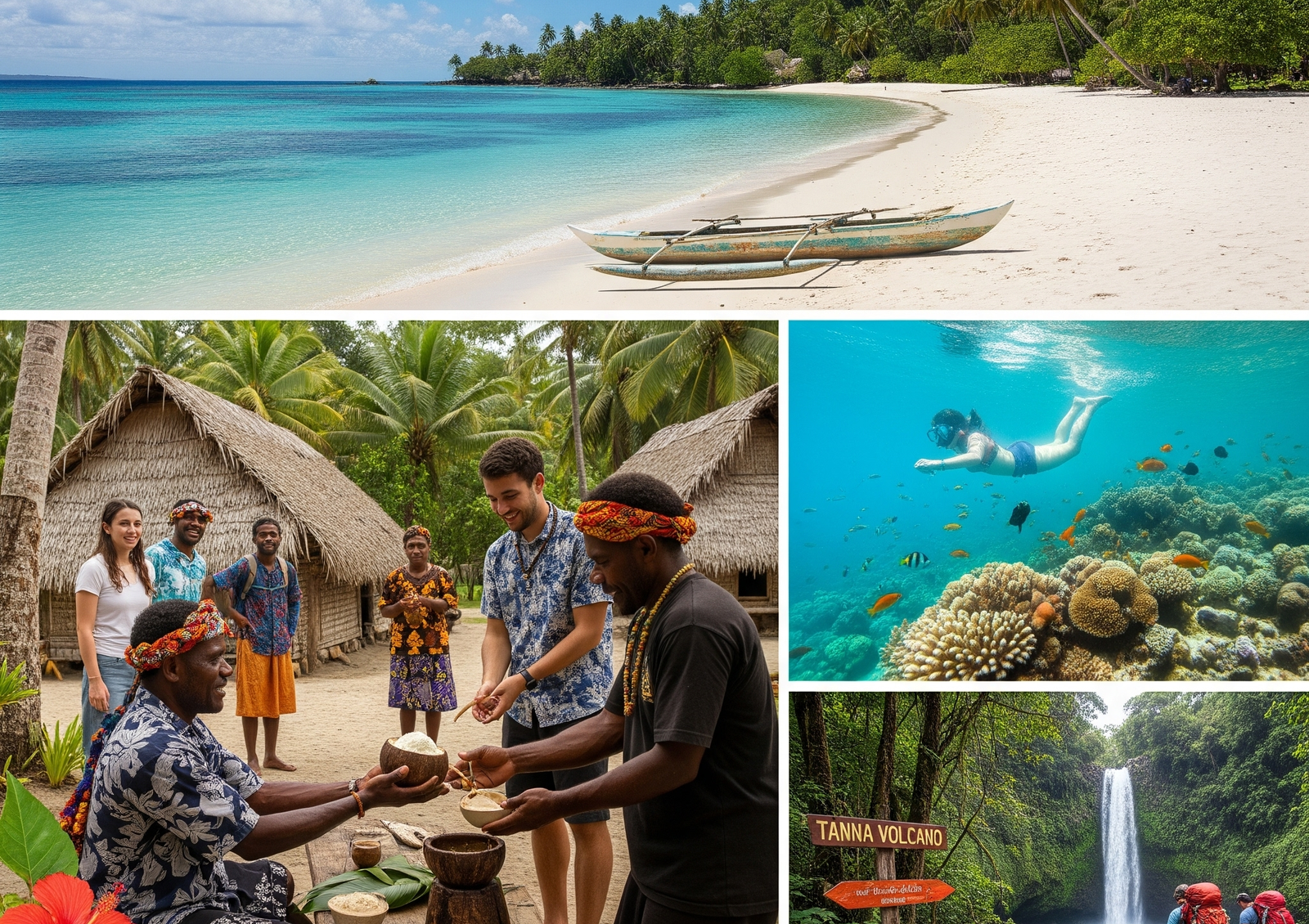Vanuatu. The name itself conjures images of pristine beaches, lush jungles, and the raw power of active volcanoes. But beyond its undeniable natural beauty, this South Pacific gem stands out for its deep-rooted cultural heritage and a growing commitment to eco-tourism. Here, responsible travel isn’t just a buzzword; it’s often an inherent part of the local way of life, where communities are deeply connected to their land and traditions.
For the conscious traveler in 2025 seeking genuine, low-impact experiences that benefit both the environment and local communities, Vanuatu offers a remarkable array of opportunities. Here are some of the top eco-tourism experiences that showcase this extraordinary nation:
1. Witnessing the Power of Mount Yasur (Tanna Island)
- The Experience: Trekking to the rim of Mount Yasur, one of the world’s most accessible active volcanoes, is an awe-inspiring spectacle. You’ll witness explosive eruptions, feeling the rumble beneath your feet and watching molten lava light up the night sky.
- Eco-Tourism Angle: The volcano is managed by local Kastom owners who ensure responsible viewing, control access, and explain the cultural significance of the site. Your entrance fees directly support the local communities living around the volcano. Guides are locals, sharing their traditional knowledge and ensuring safety without harming the fragile volcanic ecosystem.
2. Immersing in Kastom Villages & Cultural Tours (Various Islands)
- The Experience: From the ancient rituals of Nagol (land diving) on Pentecost Island (April-May) to everyday life in local Kastom villages on Tanna, Malekula, or Ambrym, these tours offer an authentic glimpse into Vanuatu’s diverse cultures. You’ll witness traditional dances, learn about local legends, observe ancient farming techniques, and understand the importance of Kastom (traditional law and custom).
- Eco-Tourism Angle: These are community-led initiatives where villagers directly benefit from tourism. By participating, you support the preservation of unique cultural practices, traditional knowledge, and sustainable living methods passed down through generations. These experiences often promote sustainable agriculture and handicrafts.
3. Exploring Marine Protected Areas & Responsible Snorkeling/Diving
- The Experience: Vanuatu boasts incredibly healthy coral reefs and abundant marine life. Sites like Hideaway Island Marine Sanctuary (Efate) are thriving examples. Diving and snorkeling here allow you to witness vibrant corals, diverse fish species, and even dugongs in certain areas.
- Eco-Tourism Angle: Dedicated marine sanctuaries protect fragile ecosystems from overfishing and damage. Operators in these areas typically enforce strict “no touch, no take” policies, promote reef-safe practices (like using eco-friendly sunscreen), and often reinvest fees back into marine conservation efforts and community projects.
4. Kayaking & Paddleboarding Through Blue Holes (Espiritu Santo)
- The Experience: Espiritu Santo is famous for its “Blue Holes” – natural freshwater spring-fed swimming holes of astonishing clarity and brilliant sapphire hues. Experiences often involve kayaking or paddleboarding to these serene spots.
- Eco-Tourism Angle: Non-motorized activities ensure minimal environmental impact. The Blue Holes are typically managed by local landowners who ensure cleanliness and charge a small entry fee, which directly benefits their community and the upkeep of these natural wonders. It’s about appreciating nature without leaving a trace.
5. Embracing Sustainable Stays & Agri-Tourism
- The Experience: Opt for eco-lodges, locally-run bungalows, or guesthouses that emphasize sustainable practices – solar power, rainwater harvesting, composting, and sourcing local produce. Many offer tours of their own organic farms where you can learn about cultivation of local crops like kava, coffee, or cacao.
- Eco-Tourism Angle: These accommodations and experiences directly support local economies, reduce the carbon footprint of your travel, and encourage sustainable resource management. It’s about being part of the solution, not the problem, in a destination highly vulnerable to climate change.
How to Be an Eco-Tourist in Vanuatu:
- Choose Certified Operators: Look for tour operators and accommodations that visibly commit to sustainable practices.
- Support Local: Buy handicrafts directly from artisans, eat at local eateries, and use local guides.
- Minimize Your Footprint: Conserve water and electricity, refuse single-use plastics, and dispose of waste responsibly.
- Respect Culture: Ask for permission before taking photos, dress modestly in villages, and be open to learning about Kastom.
- Leave No Trace: Take nothing but photos, leave nothing but footprints.
Vanuatu is not just a destination; it’s an immersive journey into a culture deeply connected to its environment. By choosing eco-tourism experiences, you don’t just witness its beauty – you contribute to its preservation, ensuring this South Pacific paradise remains vibrant for generations to come.


Leave a Reply